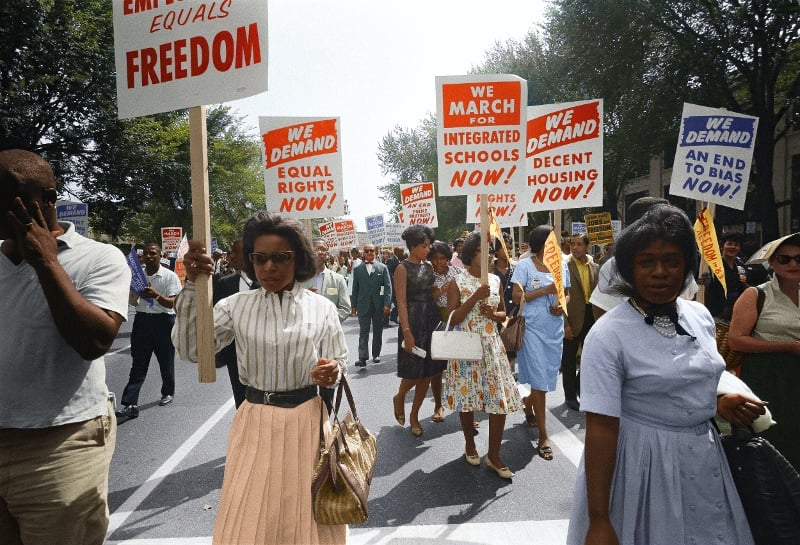Social Inequality
Social inequality is the condition of unequal access to the benefits and rights of society. In a purely equal society, every citizen is equally able to contribute to the overall wellbeing of that society, and they are equally able to benefit from their membership within that society.

Types of Social Inequality
Social inequality is usually the result of unfair inter-social treatment (biases and prejudices) and unjust government regulations. Social inequality can be further broken down into two types: direct and indirect.
Direct Social Inequality occurs when unfair treatment of a group (or groups) is deliberate and can be present in both community or government capacities. Direct inequality is a purposeful act that takes away resources, opportunities and/or rights from some and not others. Examples include:
- Governmental: Legislation mandating the segregation of schools and other public places along racial lines
- Inter-Social: Business owners refusing to serve clients based on sexual orientation
Indirect Social Inequality occurs when unfair treatment of a group (or groups) is not the explicit purpose of a policy or action, but still results in social inequality. Examples include:
- Governmental: Legislation that eliminates or limits early and mail-in voting and/or requires photo ID. The stated purpose of these laws is to mitigate voter fraud but the consequence is that people who often can’t vote in-person only on election day (students, the elderly, or those who can’t otherwise afford to leave work or transport themselves to polling stations) are disadvantaged.
- Inter-social: Purchasing clothing that was made in sweat shops. Sweat-shop laborers are overworked, underpaid, and often work in unsafe working conditions, hindering their ability to contribute to and benefit from society. So while buying clothing itself does not create social inequality, it supports conditions that do.
How Social Inequality Impacts Indigenous Communities
Pachamama Alliance supports the work of several Indigenous communities in the Amazon, including the Achuar who are protecting their land, culture, and rights from extractive industries encroaching on their territories.
The Achuar experience indirect social inequality by virtue of policies and behaviors that perpetuate destruction of their homeland. When we as consumers, for instance, continue to drive demand for fossil fuels, it results in governmental policies that favor oil companies over the rights of Indigenous communities. When their land is seized or otherwise degraded, the Achuar are unjustly, unfairly, and unequally bearing a burden that governments and corporations around the world have imposed upon them.
